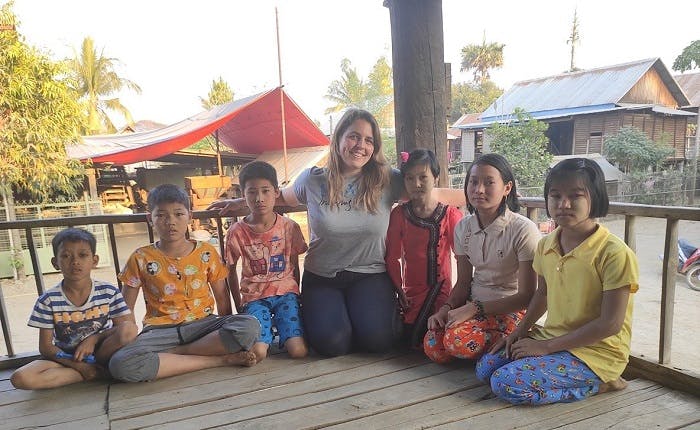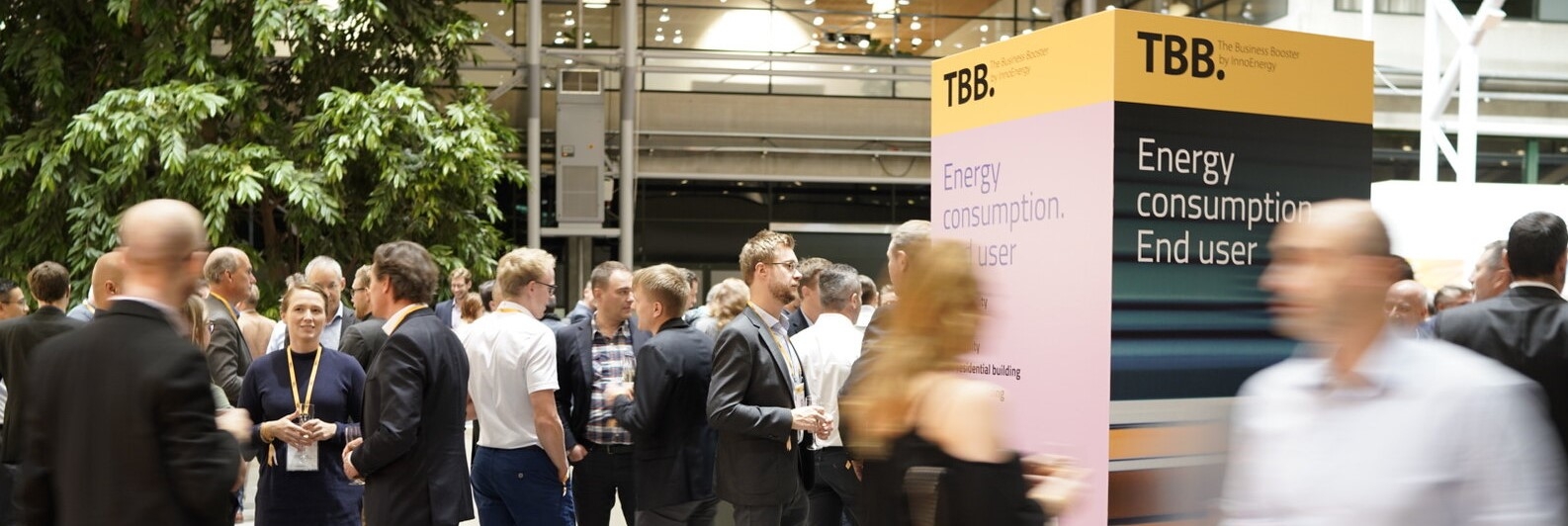InnoBlog: Working for rural electrification in Myanmar

In my most recent interview for InnoBlog, a series of articles that I share about EIT InnoEnergy students and graduates and their experience in the industry, I interviewed Alexis K. Phillips, a fellow graduate from the MSc. Renewable Energy. Alexis is currently working with Mandalay Yoma Energy, a mini-grid project company in Yangon, Myanmar.
Alexis is from the U.S.A and had always wanted to help the under-privileged using her engineering skills. Working in the mini-grid industry is complex and very hands-on, and Alexis was always up for that challenge! The environment is rapidly changing and new ideas to make processes more efficient are always well received. Knowing that internships and thesis can take up 40-50 hours a week, Alexis couldn’t imagine doing something that wasn’t high impact. Providing off-grid electricity to villages was one of the main reasons why Alexis pursued renewable energy, as energy access is a key to escaping poverty.
Tell us a bit about your role at Mandalay Yoma Energy.
I worked as Project Manager of the Design and Planning Team. Luckily, I got to travel to three villages to set up an MOU before Covid-19 travel restrictions were put in place. My main goal was to make the Design and Planning operations more streamlined from finding the villages, determining their eligibility, collecting the information and necessary forms (with a Site Visit application I designed), creating the feasibility study, providing feedback from external auditors and government, all the way through contract signing.
Due to the slowdowns caused by Covid-19 (and thus inability to travel to new villages and design new mini-grids) my role expanded to analysing the company’s revenue strategy and coordinating with operations to better understand and resolve the daily issues that go on with a mini-grid. I was able to work on the development of a mobile payment application to switch the villagers to cashless payment and improve the smart metering web portal functionality. I also prepared revenue and consumption analysis for investor reports, applied to a tender for a mini-grid project in Mozambique, and created an initial pilot project framework for solar irrigation.
How did EIT InnoEnergy Masters prepare you for this role?
The Master’s programme helped me learn to juggle many projects and coordinate between various teams, especially in international setting. I was the only foreigner in the Design and Planning team, but I was used to the networking with a dynamic group from studying overseas. I appreciate the differences and am now more skilled at finding peoples’ strengths and weaknesses, and play upon them to more effectively manage my team.
Personally, one of the best parts about the Master’s programme for me was the Career Impact Porgramme, a professional development journey that is fully aligned into your Master’s programme. I happened to get along really well with my advisor who also did a similar internship working for a solar company in Uganda. She helped me during my job search and it was then I knew that I had to work with mini-grids. She helped me describe my ideal workplace and position, and offered useful hints with LinkedIn suggestions and networking opportunities.
Has this been a fulfilling experience?
Yes of course! I’m very grateful for this experience. There are things that you really can’t learn from the classroom and you have to be hands-on to experience it. I got to understand the complexities of the solar mini-grid business such as working with various stakeholders, the nuances of having a project in a remote area (usually with little or no cell service), daily issues with pre-paid meters, and overall context of the villagers’ expectations. For instance, I found out that many of the households don’t use their lights at night because the street lights we have installed for the distribution system are enough light for them (and most of them go to bed when the sun goes down because they are agrarian). Or that some villagers are very rich, yet they simply don’t feel the need to spend money on electricity as it is not a necessity for them. I definitely have a new perspective on the industry as a whole.
Any encouraging words for future students who want to take this path?
I would say if this type of work sounds interesting to you, give it a go! It’s tough work but very rewarding, especially if you like working in undefined and fast-paced environments. I loved experiencing something different. Studying in Europe was a lot of fun! Even then, I still felt a craving for exploring a drastically different culture, and Myanmar did just that. There’s plenty of improvements to be made so if you are passionate about rural electrification Myanmar is the perfect place to come work and make a difference.

